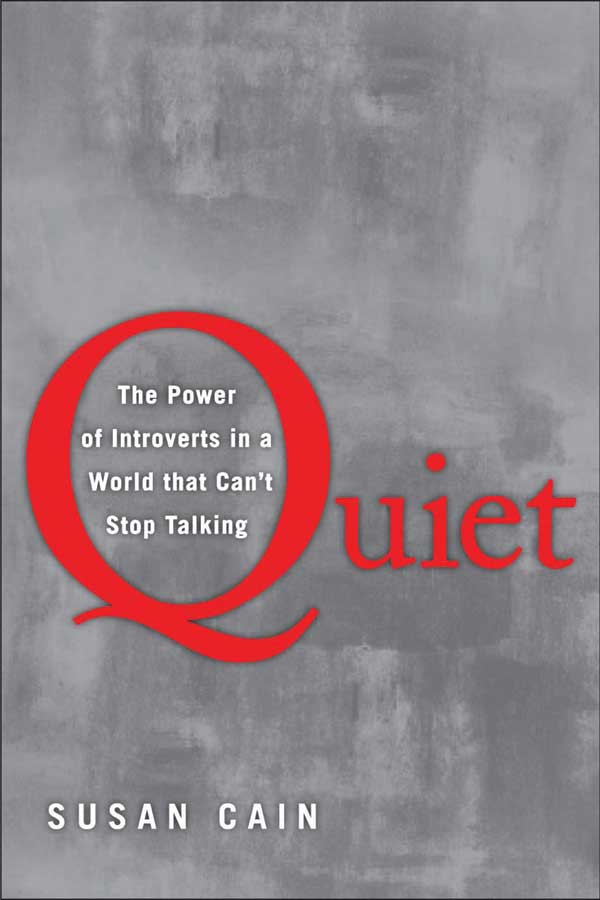“Quiet” speaks loud about introverts
“Quiet: The Power of Introverts in a World that Can’t Stop Talking”
When I first heard Susan Cain on a TED Talk last year, I was mesmerized. Cain, a self-named introvert, was talking to a large group of people about—me! (Or rather, introverts like me.) Her voice was clear, confident, and engaging. So when “Quiet” appeared in the New Books section of the Willey Library, I couldn’t wait to read it. What else would I learn about introversion? Would I discover the secrets behind Cain’s strength?
Like an introvert, I read “Quiet” methodically, pondering each section. This is what Cain taught me. First, introversion does not equal “bad,” and extroversion does not equal “good.” There is no right or wrong to what type you are. Second, our world needs introverts. Third, if you read this book, whether you are introverted or extraverted, your life—the choices you make and how you interact with others—will make much more sense.
Cain’s book revolves around this thought: “If there is only one insight you take away from this book…I hope it’s a newfound sense of entitlement to be yourself.” If you are an introvert, this sentence is profound. To partner entitlement with introversion is, well, ground breaking! There is more.
Cain notes that prior to the 20th century, our country valued such qualities as honor, integrity, and work. Since the 1900s, our society has valued such qualities as magnetism, energy, and dominance. In our current culture, we encourage and teach individuals to embrace extraversion, and it is woven heavily into our culture—from Harvard’s MBA program, to religious evangelical movements, and to work environments that focus on teambuilding and open floor plans.
Cain in no way disparages these values. Instead, she points out that other qualities are just as important, qualities that our country needs in order to thrive and stay balanced. Enter we introverts—for our creativity, for our perseverance, for our level-headedness, and for our capacity to value and thrive in quiet.
You see, whether or not human beings come by their temperament genetically or environmentally, introverts and extroverts think differently, and have much to learn from each other in private and social relationships. Sometimes to reach our goals, we introverts must learn to be more extraverted than we really are. Sometimes, to reach their goals, extroverts need to learn the practice and reward of quiet. But if this change becomes too much of a stretch, then, by all means, as Cain says, “be yourself.”
Finally, Cain discusses the art of raising introverted children. The art, of course, is to allow children to develop at their own pace and with their own temperament, rather than to force-mold them into ill-fitting extroverts who may end up with a lifetime of problems. The art also is to know that introversion is not a curse, but rather its own unique blessing.
J.K. Rowling is an introvert. I imagine her brain forming and holding hundreds of paragraphs pushing to escape, as she works through her monotonous and ill-suited day job.
The next time you are in class, notice the students who aren’t answering or participating. (Maybe you are one of them.)
Rest assured that their brains are working just fine. Maybe they’ve a brilliant thought about your instructor’s lecture and just can’t get it out, or need extra time formulating it.
Or maybe, like Rowling, they are creating and hoarding paragraphs of a fantastic novel, and will write them out as soon as they get back to their dorm room.
The point is that introverts aren’t “wrong.” Read “Quiet,” but don’t be in a hurry. Cain’s book needs time to bloom.






